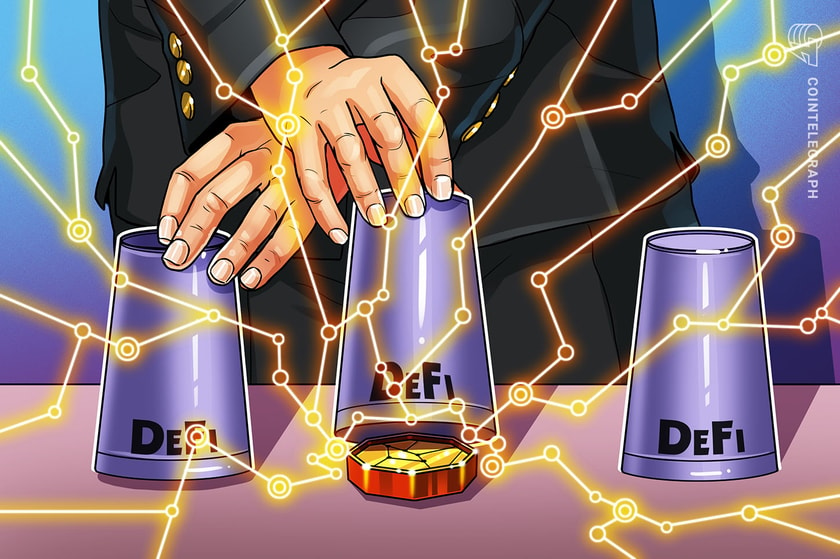Russia has been trying to pass cryptocurrency legislation since the beginning of January 2018, with no success as of yet. The government’s main bill, “On Digital Technologies,” which was expected to be passed by July 1 — according to the wishes of President Vladimir Putin — will instead most likely be pushed back until an October Duma session.
According to Artem Tolkachev, the self-proclaimed “first” lawyer in the Commonwealth of Independent States (CIS) to begin working with Bitcoin (BTC) and blockchain startups, the reason the crypto bills didn’t make it on the July agenda was “because of the complexity of the subject and lack of consensus over the state authorities about how and what they should regulate.”
The problems arising within Russia over how to regulate cryptocurrencies have taken the form of conflicts between the Russian Central Bank’s more conservative stance and the Ministry of Economic Development’s willingness to embrace a new technology with the hope of attracting more business to the country.
Tolkachev, who has been chairman of the Russian Blockchain.community since 2016 and founded the Blockchain Lab at Deloitte CIS, said that the current version of the crypto and blockchain legislation — which takes its form in three draft bills — has not lived up to his expectations.
Speaking to Cointelegraph, Tolkachev said that “of course” he is “disappointed by the current version of the regulation,” noting that the three bills — “On Digital Technologies,” regulation of the central bank on crowdfunding (including Initial Coin Offerings (ICO) and amendments to the Russian Civil Code — were prepared independently, which makes their legislation “rather ineffective.”
Tolkachev added,
“I spent around two years discussing with the central bank, the Ministry of Finance, the Ministry of Economic Development, the general security service and all [the] other guys [about] how we can regulate this stuff. And I was trying to sell the idea […] that we can be the country who attracts that kind of business and have the crypto-friendly environment here. Unfortunately, we have what we have. What can I say? That’s it.”

Yuri Igorevich Pripachkin, the president of the Russian Association of Cryptocurrency and Blockchain (RACIB), told Cointelegraph that the group was also consulted during the formation of the cryptocurrency bill, but that the bill still contains some unfavorable terms. According to Pripachkin, the Russian cryptocurrency bill in its current form is “far behind the ones which were accepted in Belarus, Kazakhstan and many other countries like Singapore, Switzerland.”
So what exactly is Russia’s digital economy legislation?
At the end of January 2018, the first variant of a Russian crypto bill was presented by Russia’s Ministry of Finance (MinFin). The bill on the digital economy included a framework for the regulations surrounding crypto and blockchain-related technology — like smart contracts, mining and ICOs. Russia’s central bank was also preparing a draft law on crowdfunding.
Tolkachev clarified that the draft laws are “not creating regulation for existing cryptocurrencies and tokens,” but are specifically aimed at newly created ICOs:
“According to these draft laws, none of the existing cryptocurrencies, especially cryptocurrencies with nothing behind [them], for example, Bitcoin […] will be allowed in Russia. It wouldn’t be under the scope of this legislation at all. According to the three bills, we can talk only about some kind of asset-based tokens, not about cryptocurrency.”
This first variation of the bill was originally opposed by the Bank of Russia, according to local news outlet TASS, which reported at the time that the central bank disagreed with the way transactions between crypto, rubles and foreign currencies were laid out. However, MinFin noted that any sort of legislative ban on crypto transactions will “lead to the creation of conditions for the use of such currency for illegal purposes.”
Pripachkin told Cointelegraph that “MinFin and [the] central bank, they can’t find the golden middle, because they’ve got different opinions in terms of cryptocurrency legislation, so it affects [the] legislative process.”
At the end of February, Russian President Vladimir Putin announced that crypto regulation should become law no later than July 1, 2018. At this time, Russia’s central bank still wanted to criminalize ICO token investments, while MinFin was insisting on just regulation, according to local news outlet Parlamentskaya Gazeta. The outlet quoted Anatoly Aksakov, Chairman of the State Duma Committee on Financial Markets, who commented on the central bank’s position:
“The central bank has come out against the legalization of this kind of digital currency inasmuch as citizens could then actively invest in instruments without considering possible risks.”
Tolkachev noted that the state authorities like the Ministry of Economic Development are “much more about creating a good environment for business, for attracting new business,” and thus think the regulation should be changed from the current draft bills. On the other hand, Tolkachev notes that the central bank and the Minister of Finance are the “really conservative guys who don’t really want to see cryptocurrencies.”
In March of this year, a group of Russian deputies headed by the Chairman Aksakov submitted the first draft of legislation on cryptocurrencies and ICOs to the State Duma, as well as a draft of the bill “On Alternative Methods of Fundraising (Crowdfunding).”
This draft defines cryptocurrencies and tokens as digital assets, with trading only allowed through authorized cryptocurrency exchanges, and establishes KYC regulations for ICOs. Digital assets are also defined as property, not as a legitimate means of payment in the Russian Federation. This March version differs from the initial January variant in that it now echos crypto exchange requirements in United States — i.e., the verification of accounts for anti-money laundering (AML) and counter terrorist financing (CTF) purposes.

Tolkachev noted the problem with the bills were their references to “basic Russian AML/KYC rules,” as they “may not be effective for tracing and monitoring transactions with crypto assets.”
The March bill also suggests the maximum limit of an individual investment in ICOs be defined by Russia’s central bank rather than the January-suggested 50,000 rubles (about $800).
January’s disagreement between the central bank and MinFin had been solved in March, according to local news outlet Ria Novosti, with the Bank of Russia noting that it will be considered permissible to exchange rubles, foreign currencies or property for tokens issued by Russian ICOs, while it will not be allowed to use cryptocurrencies due to the possibility of “questionable transactions.”
Also in March, Igor Sudets, a member of the Duma’s expert panel on the digital economy and blockchain, said that due to the proposed bill’s limit on domestic investment in Russia ICOs, investors may not want to conduct Russian ICOs, according to Forklog:
“I very much hope that [ICO investment specifications] will be substantially finalized for the second reading. Because otherwise, nobody will want to conduct ICOs in Russian jurisdiction, since the main goal — to raise money — will be unattainable.”
In April, a review of the draft crypto bill added that the exchange of crypto for fiat of more than 600,000 rubles (about $9,500) or its foreign equivalent would fall under mandatory currency exchange regulation.
Pripachkin said that RACIB is currently working to create additions to the bill that can be proposed to the Duma, and hopes that the Russian officials will take the changes into consideration:
“For now, we’re working on preparation of some kind of tips, we really hope that they are going to hear us, according to these remarks we are preparing […] legal bodies should really understand that if they are going to accept the law which is not in the interested of such industry, then this industry is not going to survive.”
He noted that he does believe that the drafts “are going to be accepted and implemented later on.” Otherwise, in Pripachkins’ opinion:
“None of the foreign investors will come, and what is more — the local industries could leave the country.”
The problems that Pripachkin sees in the bill are that there is not a lot of clarity “in terms of the mechanism of ICOs, nor about crypto exchanging licensing,” but he does note that mining is noted as being classified as an entrepreneurial venture for taxation and VAT purposes.
Where the crypto bill is now
The most recent version of the bill was approved by the State Duma in its first reading on May 22 in an almost unanimous vote — 410 for and one against.
However, on Sept. 19, Russian news outlet Vedomosti reported on an updated version of the bill, which no longer contains a definition for “cryptocurrency,” and where mining is defined as the “release of tokens to attract investment in capital.” In the previous version of the bill, mining was the extraction of cryptocurrencies.
The bill does not make digital currencies a legitimate means of payment. Instead, the central bank, the Ministry of Finance and the Ministry of Economic Development will create separate guidelines for these currencies to be used as payment in “controlled quantities.” The bill also makes a digital confirmation by a user in a smart contract legally equivalent to their written consent.
And, while crypto exchanges don’t fall under the scope of the bills’ legislation, Tolkachev noted that Russians can still trade in crypto through peer-to-peer (p2p) transactions in a “so-called ‘grey zone.’” In a separate comment with Vedomosti, Tolkachev underlines that the draft law does not regulate transactions with cryptocurrencies. Russia’s Federal Financial Monitoring Service notes that crypto exchange operators are subject to Article 5 of Federal Law 115-FZ (AML and CTF) or they will lose their license.
Pripachkin told Cointelegraph that the “Russian crypto industry and crypto economy is headed [down] the best path […] It’s not a problem for us that we are restricted by legislation in Russia. But, of course we would love to have the first [legislative norms] in the world.”

At the beginning of September, Dmitry Peskov, a special representative of the Russian president, said that Russia was not ready for the circulation and issuance of cryptocurrencies, as it “contradicts the basic functions of government.” Peskov notes that the best way forward to develop the cryptocurrency sphere legally in the country is to create a regulatory sandbox to analyze the different aspects of the crypto industry.
To this end, the Central Bank of Russia also announced on Sept. 11 the successful test of an ICO trial conducted with Sberbank and the National Settlement Depository.
More recently, on Sept. 15, a lobby group of the Russian Union of Industrialists and Entrepreneurs (RSPP) announced that they were also working on an alternative crypto regulation bill in order to clarify the supposed contradictions in the existing bill “On Digital Financial Assets.” This new bill is set to be developed by Russian businessmen, including two of the richest businessmen in the country: Vladimir Potanin, of the nickel and palladium mining and smelting company Nornickel, and Viktor Vekselberg, head of the Russian innovation fund Skolkovo.
Elina Sidorenko, the vice president of RSPP, explained that the new version of the alternative bill will divide digital assets into three groups: tokens, which will be equivalent to securities, cryptocurrencies, and digital ‘signs.’ Sidorenko, who didn’t clarify what “digital ‘signs’” entailed, noted:
“Cryptocurrencies will have a special status, which has never appeared in Russian legislation before, and will be regulated on the basis of laws and regulations that will be issued by the Russian Central Bank. The central bank will issue licenses for exchange operations. In this regard, the status of crypto owners will be notably facilitated in comparison to securities owners.”
If approved by members of the RSPP, the bill can then be then discussed with Russian officials in October.
In mid-September, cryptocurrency exchange Huobi joined Russia’s VEB Innovation Fund to share notes on crypto regulation and help create “a legal basis that could compete with current promising jurisdictions.”
Putin and crypto
Although President Putin himself instigated the now-passed deadline for cryptocurrency regulation, the country’s leader has still not made any clear, definitive statements about the future of cryptocurrency in Russia.
However, cryptocurrency was mentioned during President Putin’s most recent live Q&A “Direct Line” with the public, where he spoke relatively negatively — albeit vaguely — about cryptocurrencies and their use cases, noting that they work partially in Japan but not in any other countries.

Tolkchev believes that the reason Putin chose to speak about crypto in “Direct Line” is the lack of consensus between the regulator and the state authorities,
“That’s why if he answers something, in some way, it would be something like a direct order to the regulators and the state authorities. I think he just doesn’t want to do it right now because a lot of discussions are taking place over this topic.”
Pripachkin added that Putin was just repeating the position of the central bank, and that RACIB in their proposed amendments to the crypto bill is “working on explanations [on] why they’re thinking somehow in the wrong way […] [and] trying to clarify the fears of the central bank.”
The future of crypto in Russia
Cryptocurrency use to avoid sanctions has become a topic worldwide after Venezuela, a country under international sanctions, created its oil-backed government cryptocurrency, the Petro, earlier this year.
In January, Sergei Glazyev, economic adviser to President Putin, said that a Russian government-created “CryptoRuble” would be able to alleviate some economic pressure caused by Western sanctions.
However, Tolkachev doesn’t think that Russia will be looking to cryptocurrencies to avoid sanctions anytime soon, especially as the CryptoRuble is “still nothing but a rumor that’s been denied a number of times by various state authorities”:
“I think from the [state’s] perspective, it’s not a very safe way to use some kind of cryptocurrencies which [the] state doesn’t control, to rely on it as a main source of dealing with the sanctions […] As far as I understand the current agenda, it’s not on the list, we can’t use crypto to beat the sanctions.”
On the other hand, Pripachkin was confident that the CryptoRuble project will eventually be implemented:
“This project will be created. Sergey Glazyev is highly advanced in economics, and he understands what he is talking about.”
But Tolkachev does think that Russia will continue to see cryptocurrencies as something to have control over, as that has been the Russian mentality for the past “10 years”:
“Russia and the Russian mentality of the last 10 years was about competing with the [rest of the] world and building something of our own. And of course the Russian government would like to have a control over the internet, over […] cryptocurrencies […] For such kind of situation where a lot of people are involved, a lot of new technology involved, the government would like to have a little bit more pressure than other countries because of the paradigm in which we are living.”









